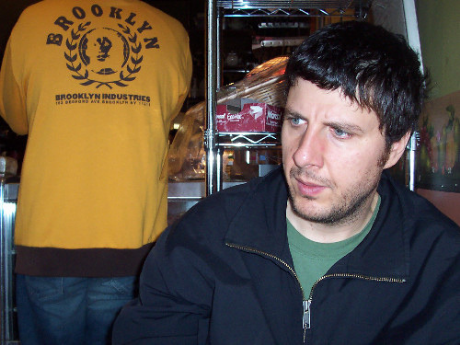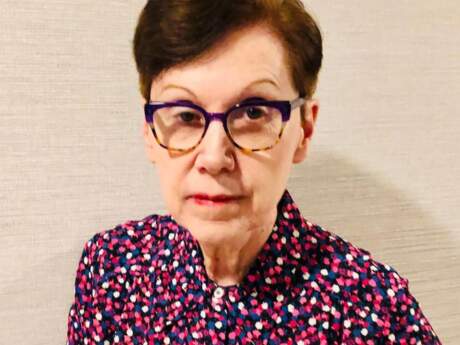In Their Own Words
Matthew Zapruder’s “Kingdom Come”

Kingdom Come
She asked me how long it will be
until the giant black rose
she has seen in her dreams
bursts out of the ocean just beyond
the walls of the circular city
and drips molten fire on the heads
of likenesses of the smiling gods
who sent a message from outside
our solar system crying
and swearing to protect us
if we built them. Quite
a long time. Probably many
hundreds of years. First we must
build the circular walls,
then the towers and the steps.
Then we must build the satellite array
and send it into the atmosphere.
And we don't have that
technology yet. The scientists
who can dream of building it
have not yet even been born. So
for now I say to her let us live
here in this apartment and make
sounds of love on this futon
while outside the window the orange
extension cable strangles
the white and green flowering branch
and monks cry anciently on the radio.
All rights reserved. Reprinted with the permission of the author.
On "Kingdom Come"
I wrote this poem as part of a collaboration I did in spring of 2008 with the painter Chris Uphues. Chris and I met at a bar after a reading I had given, and he told me he was a painter. I had a feeling he would be good. He sent me photos of ten paintings via email and I was blown away by his work, so I took his titles and wrote ten corresponding poems. Chris's paintings for me work like poems: you get a general sense of what's going on at the beginning, and then as your perception of the painting sharpens (like hearing or reading more lines of the poem as move through it) you get to a more developed idea of the situation, and your emotional involvement deepens. In some of the poems, like this one, I take elements of the painting and use them in the poem, while also creating a separate scene or interaction that can incorporate those elements. Other poems are more obliquely related to the paintings. In this poem the "she" asks the narrator about the meaning of the apocalyptic scene depicted (which for her is not a painting, but a dream). During the time of these collaborations I was living in an apartment, a.k.a. a tenement in the East Village which was filled with the owner's disturbing and somehow very powerful quasi-primitive art. Outside my window I could see an extension cord leading from one of the apartments above me down into the street, presumably for a purpose. That was the time of the terrible persecution of the monks in Myanmar by their government, and of course a lot of that all the time was on the radio. So all those things wandered into the poem.


